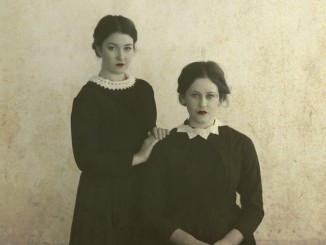
Rough Mutt [by Matt Baker]

Dog “has been through a number of development phases”, however, while playwright Ben Hutchison states that this production understood what he “was aiming to achieve”, the result seems ironically underdeveloped. The play starts off promisingly, with a strong balance of both verbal and physical humour, setting a well-pitched comedic tone in regards to the context, however, under the direction of Jeff Szusterman, this tone and pace never changes. The result is that the play becomes very drawn out, with the second “act” playing out uncomfortably longer than the first. While some elements of the script planted in the first half complete themselves in the second, there is a sense of sudden, unnecessary dramatic drive in the latter, turning the play into two separate stories, instead of a sub-plot emerging from an initial premise.
I can’t help but be aware of the dramatic irony of Gareth Williams’ mentioning of a stroke when considering actor Mick Innes. While the effects are evident, albeit to a very minor degree, his ability to drive the first half of the play and make an underwritten emotional journey and psychological shift are made with great clarity. His thespian drive parallels his on-stage objectives, and even the glimmer in his eye when engaging with Ruakere somehow seems to disappear when reaching the apotheosis.
While not her theatrical debut, Shavaughn Ruakere has yet to truly tread the boards as an actress. However, even with her lack of theatrical training, as evident in some of her vocal work and stage craft, Ruakere has a remarkably natural ease on stage. Her internal drive is constant, if not misguided by the writing, and both the humour and sadness that her inner turmoil evokes is well-pitched in The Basement’s main stage.
Williams steals the show with his awkwardly accurate portrayal of social outcast Warwick. I say steal, because his character’s journey, which is difficult, yet given full range by Williams, should not be the focus of the play. This is not a response to Williams’ performance, the lightness of which allows for easy engagement with the play as a whole, which is effectively his role for the audience as the outsider, but to the writing’s odd choice of focus on the separate characters and their relationships dynamics.
Tim Williams’ lighting design gives full dimension to the internal side of Kenah Trusewich’s detailed set, but is limited and feels unexpectedly dark for the exterior, and his operation can afford to be much more subtle. Asides from Ruakere’s slightly 1950s housewife work wardrobe, Charlie Baptist’s costumes instantly flesh-out the individual and recognisable character types – right down to Warwick’s Velcro accessories.
The play’s premise has the opportunity to evoke a catharsis that would affect anyone as much as any dog-owner, however, while some lines carry a poignant weight to them, they don’t result in much more than the affectations of a Hallmark card. I had a dog. I held her in my arms as she was put down. It was devastating. I understand that the themes in Dog go beyond this, but even when considering these universal themes, I left Dog completely unmoved. Perhaps I anticipated too much, but should we not expect some response from our theatrical experiences as an audience?
Dog is presented by Wolfgang Creative and plays at The Basement until August 30. Details see The Basement.
SEE ALSO: Theatreview review by Stephen Austin




Leave a Reply